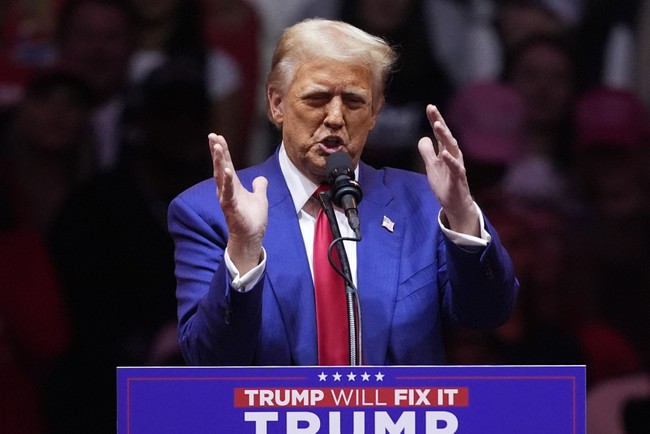A Timeline of Presidential Assassination Attempts
Explore the harrowing history of attempted and successful assassinations of U.S. presidents, including the recent attack on former President Donald Trump.
Published July 15, 2024 - 00:07am

Image recovered from irishtimes.com
The attempted killing of former President Donald Trump at a campaign rally in Pennsylvania marks the latest incident in a long history of political violence targeting U.S. leaders. Trump, whose ear was grazed by a bullet, was quickly moved to safety by Secret Service agents. This event adds another chapter to America's storied and tumultuous history of presidential assassination attempts.
Throughout U.S. history, four presidents have been assassinated while in office—Abraham Lincoln, James Garfield, William McKinley, and John F. Kennedy. Lincoln was killed in 1865 by John Wilkes Booth, a Confederate sympathizer, at Ford's Theatre in Washington, D.C. Garfield was shot by Charles Guiteau in 1881 at a train station, succumbing to his injuries months later. McKinley was assassinated in 1901 by anarchist Leon Czolgosz in Buffalo, New York, and Kennedy was infamously shot by Lee Harvey Oswald in Dallas, Texas, in 1963 while riding in a motorcade.
In addition to these successful assassinations, several presidents have survived attempts on their lives. Theodore Roosevelt was shot in the chest in 1912 while campaigning in Milwaukee, Wisconsin, but survived, bolstered by a thick speech manuscript and a metal glasses case that blunted the bullet's impact. Ronald Reagan was also wounded in 1981 by John Hinckley Jr., an incident that further boosted Reagan's popularity as he demonstrated humor and resilience during his recovery.
Gerald Ford faced two assassination attempts in 1975 within a span of just 17 days, both times narrowly escaping unscathed. George Wallace, a Democratic presidential candidate, was shot and left paralyzed in 1972 during a campaign stop. Robert F. Kennedy, another prominent politician and brother of John F. Kennedy, was assassinated in 1968 while delivering a campaign victory speech at the Ambassador Hotel in Los Angeles, California.
These incidents highlight the recurring theme of political violence within American history. The motivations behind these attacks have varied, often reflecting the political and social turmoil of the time. For example, Lincoln's assassination was partly influenced by his support for Black rights, while McKinley's death was driven by anarchist ideologies. In recent times, the attack on Trump shocked the nation, yet he managed to continue with his campaign, echoing the tenacity of earlier presidents like Roosevelt.
Furthermore, the involvement of mental illness in these incidents cannot be overlooked. Guiteau, who killed Garfield, exhibited signs of mental instability and was often deemed a psychopath by historians. Similarly, Hinckley, who shot Reagan, was held in a psychiatric hospital for years until he was deemed no longer a danger.
Political violence has not been restricted to attempts on sitting presidents alone. In 1933, President-elect Franklin D. Roosevelt escaped an assassination attempt in Miami, Florida, though Chicago Mayor Anton Cermak was killed. In 1950, two Puerto Rican nationalists attempted to assassinate President Harry Truman at Blair House in Washington, D.C., resulting in a gunfight that left one assassin dead. In recent years, threats have continued, such as the 2023 incident where a Nazi sympathizer attempted to crash a truck near the White House to harm President Joe Biden.
This pattern of violence serves as a grim reminder of the looming threats faced by political figures in the United States. The Secret Service's role has become ever more critical in protecting these leaders, highlighting the ongoing challenge of ensuring their safety amid volatile political climates.
As the nation grapples with these recurring threats, it is crucial to reflect on the stark reality that political violence has been a persistent and, at times, defining part of American history. The recent attack on Trump is a testament to the continued importance of vigilant security and the resilience of those who step into leadership roles despite the inherent risks.
/https://assets.iprofesional.com/assets/jpg/2024/10/586422_landscape.jpg)






